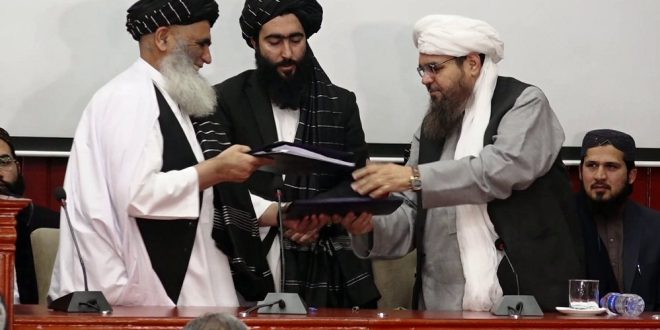Taliban secure mining deals worth $141M

KABUL – The Taliban government has finalized mining contracts exceeding 10 billion Afghanis (equivalent to more than $141 million) with four Afghan companies. The agreements, signed on Thursday, focus on gold mines in Baghlan Province, iron in Herat, and chromite in Parwan, showcasing the group’s continued efforts to leverage Afghanistan’s rich natural resources.
The contracts were formalized between the Taliban-led Ministry of Mines and Petroleum and private firms, marking a commitment to four mining projects with a total investment of 10 billion and 150 million Afghanis. Acting Minister Shahabuddin Delawar revealed during the signing that the Taliban administration would retain a 55% stake in these projects, while the remaining 45% would be owned by the private companies. Additionally, the companies are subjected to a 20% tax rate.
Delawar emphasized that the mining operations would be processed domestically, offering the potential to create thousands of jobs within Afghanistan. This development follows the Taliban’s earlier engagements, where they secured six major mining contracts collectively worth over $6.5 billion, involving countries such as China, Iran, Turkey, and the United Kingdom. These contracts focused on resources like gold, copper, lead, and iron.
Since the Taliban regained power in Afghanistan, mining has emerged as a key revenue source for the government. The Ministry of Mines and Petroleum reports that the regime has awarded contracts for 200 mines in the last two years, with 108 of them secured in the past year alone. This is a stark contrast to the 126 small mines contracted during the previous 20 years under the Republican regime.
Afghanistan’s abundant deposits of gold, precious stones, lithium, iron, cobalt, and copper, estimated to be worth around three trillion dollars, represent a significant untapped economic potential for the country. The Taliban’s strategic focus on mining underscores their commitment to harnessing these resources for economic development.
Culled from Afghanistan Times

